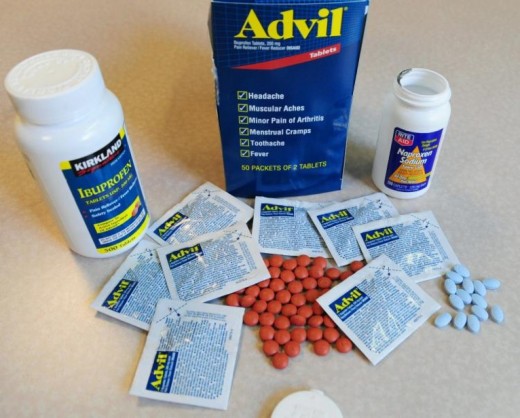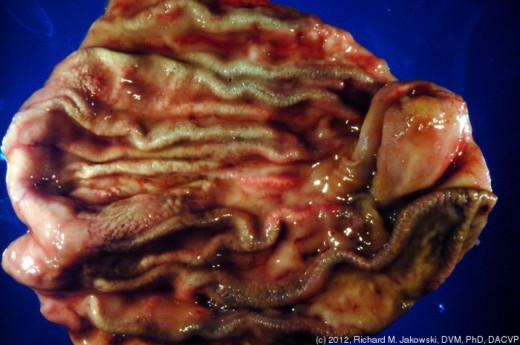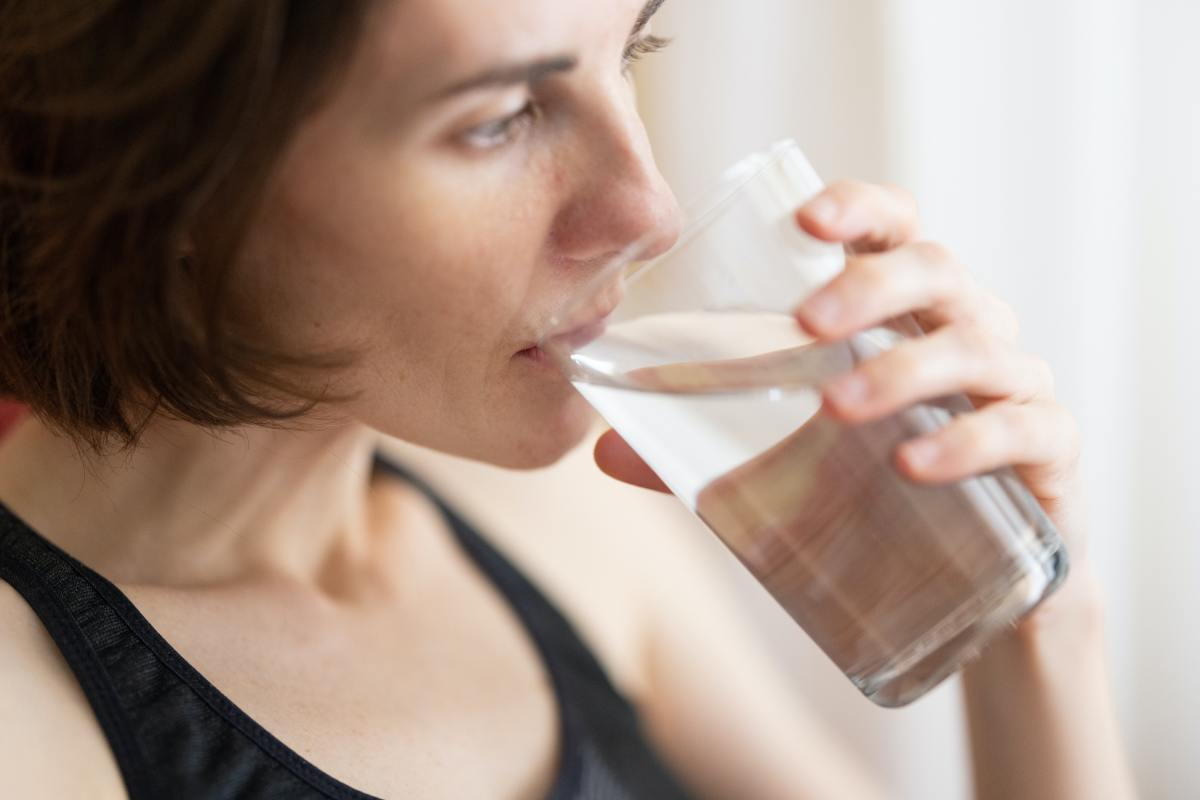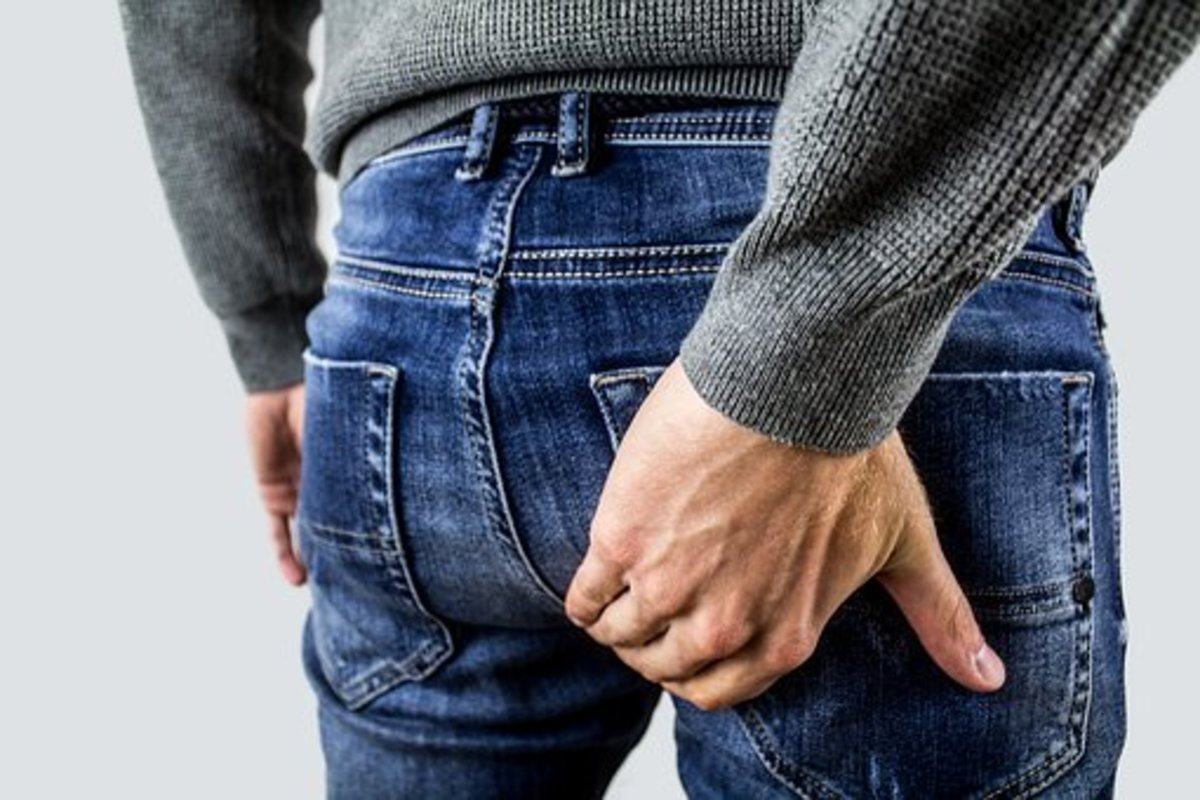Acute Gastritis: Clinical Manifestations Of Bile Reflux Gastropathy And Chemical Gastropathy
Non Steroidal Anti-inflammatory Drugs

Acute Hemorrhagic Erosive Lesions
This is one major syndrome of Chemical gastropathies, especially caused by NSAIDs. This is the bleeding of the mucosal membrane due to the chemical action of these drugs on the mucosal wall. Points to note about this syndrome are:
- NSAIDs; alcohol, bile acids or mucosal hypoxia (trauma, burns or sepsis) are responsible for this resulting syndrome. Sometimes, combination of many factors can result to Acute Hemorrhagic Erosive Lesions, such as anti-neoplastic chemotherapy.
- Severe damage to the central nervous system (Cushings ulcers) are often considered to cause Acute Henorrhagic Erosive lesions.
- Prostaglandins inhibits acid production by parietal cells thereby preventing the risk of corrosion of the mucosal wall. NSAIDs on the other hand, inhibit prostaglandin production, this results to increase gastric acid production, hence tear and errosion of the mucosa membrane, which can also lead to hemorrhage.
Gastritis
Gastritis is the inflammation of the stomach wall. The wall lining the stomach is called the mucosa and when this is congested, Oedeatous or even ulcerated with injury and blood (Acute Hemorrhagic erosive Lesions), we say Gastritis has occurred. Gastritis can be in three major forms due to its cause.
- Autoimmune: In this case, the body defense mechanism which supposed to protect the body from foreign matter begin to attack its own. Finding same body organs and treating them as foreign. In this case, the parietal cells of the stomach which are responsible for secretion of digestive enzymes and juices are attacked.
- Due to bacterial infection from an organism called the Helicobacter Pylori.
- Due to chemicals such as NSAIDs drugs, bile reflux from the intestine etc.
In this Hub, we will discuss Gastritis due to Chemicals: Non steroidal anti-inflammatory Drugs (NSAIDs) or from Bile.
Gastropathy

THE VARIOUS NSAIDs
Salicylates
- Aspirin (acetylsalicylic acid)
- Diflunisal
- Salsalate
Propionic acid derivatives
- Ibuprofen
- Dexibuprofen
- Naproxen
- Fenoprofen
- Ketoprofen
- Dexketoprofen
- Flurbiprofen
- Oxaprozin
- Loxoprofen
Acetic acid derivatives
- Indomethacin
- Tolmetin
- Sulindac
- Etodolac
- Ketorolac
- Diclofenac (Safety alert by FDA)
- Nabumetone (drug itself is non-acidic but the active, principal metabolite has a carboxylic acid group)
GASTROPATHY
This simply means, injury to the mucosa lining of the stomach, usually causing tears and even regeneration. This is always associated with the use of Aspirin or other NSAIDs. These drugs deplete mucosa prostaglandins by inhibiting the cyclo-Oxygenase pathways (COX-2 especially), which leads to mucosal damage. Other causes include:
- Cytomegalovirus
- Herpes simplex virus
- high concentration of Alcohol
- Severe stress
- Burns
- Renal diseases
- Live diseases
The two major causes of Gastropathy are due to NSAIDs (aspirin for instance) and Bile reflux.
NSAIDS (ASPIRIN)
Risk factors include
- Prior history of an adverse gastro- intestinal disease (Ulcer, hemorrhage)
- Age > 60 years
- double of normal dosage of NSAIDS intake
- concurrent use of glucocorticoids
- Concurrent use of anticoagulants
- shock
- sepsis
- Hepatic failure
- Renal failure
- Multiple trauma
Bile Reflux Gastropathy
Typically results from the regurgitation of bile into the stomach because of an operative stomach; an incompetent pyloric sphincter or abnormal duodenal motility. The effect of bile salts on gastric mucosa is comparable to that seen after chronic NSAID use.
Note: Hemorrhagic or errosive gastropathy may be associated with the development of gastric or duodenal ulcers. Acute ulceration is most likely to occur in relation to shock-induced hemodynamic instability (i.e, the stress ulcer syndrome).
Prophylaxis
For high-risk patients taking non-selective Non steroidal anti-inflammative drugs such as Aspirin; gastropathy can be prevented by taking
Misoprostol : 200ug; 4 times/day and
Lansoprazol (15-30 mg daily).
Treatment
Stop the use of the drug or treat the Bile reflux
use Lansoprazol: 30 mg twice daily
© 2014 Funom Theophilus Makama



